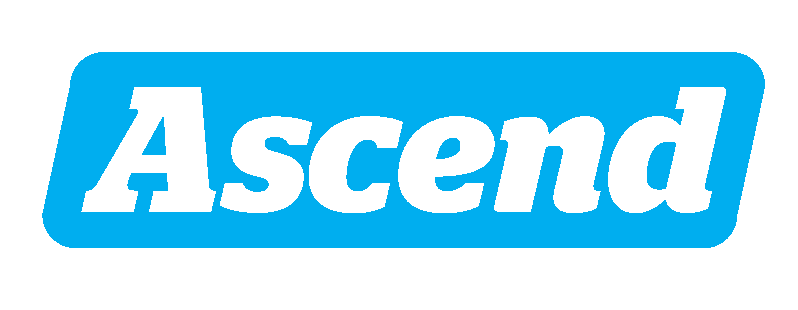When I started Ascend in 2019, I realized even though I was o-l-d OLD, I had more in common with the folks in town who were earlier in their professional investing journeys than the venerable VC’s I’d pitched as a founder. I admire and respect the new wave of Seattle/Pacific Northwest venture capitalists, and thought it would be fun to profile some of our region’s up and coming VC talents in these pages. —KW
Martina Welkhoff has probably forgotten more about VR/XR startups than most of us will ever know. In a category that’s been notoriously tough to crack, she has built a company, a studio, and now has just announced (along with partner Amy Lameyer) her $5M WXR Fund, focused on investing in women-led companies in this especially male-heavy industry. I learn something every time we interact, and I’m stoked she shared her wisdom here.
What made you decide to be a professional investor?
I often say I'm still an entrepreneur at heart, but what ultimately convinced me to go from founder to funder was the time-limited opportunity I saw to invest in women-led companies as the foundation for XR is being established. As we move from 2D to 3D computing, there's exciting opportunities to do things differently, not just in terms of the user experience, but in the way we fund companies and build out an inclusive ecosystem. Women-led and gender diverse teams have been shown to produce stronger financial outcomes, yet are still woefully underfunded, so there's huge potential economic upside as well.
What did you do before becoming an investor and how does that benefit your founders?
I co-founded a mobile gaming company called Zealyst, which I ran for six years. I then founded a VR studio called ConveneVR where we were experimenting with social XR. The main way my entrepreneurial experience benefits our portfolio companies is the empathy I have for their journey and the many challenges they face along the way.
What are your most successful investments so far?
Obsess is an immersive shopping platform that went through our accelerator in 2018 and we invested in 2020. Their growth has been astounding, and they are now working with brands like Ralph Lauren, Coach, Dior, and many notable others. The founder & CEO, Neha Singh, was the first technical product hire at Vogue and brings a unique blend of technical and market expertise that perfectly positioned her to execute on her vision to transform ecommerce.
Why should founders want you on their cap table?
We bring XR expertise and an extensive network in the space, and we love to roll up our sleeves to help our founders (without micromanaging or getting in their way!). We also have a rich community of women founders for our companies to join. I can say from my own experience as a founder that having that community of fellow entrepreneurs you can turn to for help and support is crucial, and we try to facilitate meaningful opportunities to connect whenever possible.
How many new pitches (actual calls/zooms) do you take per month?
It definitely ebbs and flows, but I've already had two today! I'd say a typical monthly range is 15-30.
How many new investments do you make per year?
5-7
What's your sweet spot(s) in terms of check size, valuation, and vertical?
Our checks range from $125k-$500k right now. We are vertically agnostic and looking for sub $10M valuations.
What one portfolio company do you want to hype for us here?
Another company that went through our accelerator and we later invested in is Embodied Labs, an immersive training platform for caregivers. The cofounder & CEO, Carrie Shaw, has become an important voice in the eldercare community and has been featured in places like the New York Times and Wall St. Journal. Her leadership through the pandemic in a space that was especially hard hit has been admirable: she was able to adapt quickly and continue to grow the company in extraordinarily difficult circumstances, which is exactly the kind of determination and nimbleness we look for in founders.
What do you think the next ten years looks like for Seattle/Pacific Northwest startups?
It's been incredible to be part of the ecosystem evolving over the past decade--there are so many more startups and funds in the region than when I started my first company, and lots of groups and programming for entrepreneurs to plug into. For a long time now, I've believed this is one of the best places in the world to found a company, and I think that's going to become even more true over the next ten years. Founders in the PNW will benefit from a more mature ecosystem and the robust set of resources that will come with that. I also think we'll see more companies with geographically dispersed teams, so early stage startups will be able to cast a wider net for talent and potentially keep costs down.
What song is currently getting the most run on your Spotify/Apple Music?
I have a eight-month old daughter who is currently ruling the playlist at our house. :) Her favorites so far seem to be Buffalo Soldier by Bob Marley, 9 to 5 by Dolly Parton, and Dancing Queen by ABBA.
Favorite shoes?
Honestly, for the past several months, it's been my Lands' End slippers.
Favorite cooking ingredient?
Salt. I read "Salt Fat Acid Heat" by Samin Nosrat soon after lockdowns started last year, and it completely changed the way I cook.
Anything else to say?
Thank you Kirby for doing this! I spent a lot of time in the last few years traveling, so I was feeling less connected to Seattle prior to the pandemic. One silver lining for me of the past year was reconnecting with this place that I truly love. I'm proud to say that we just made our first Seattle investment (announcement coming soon), and I hope it will be the first of many in the PNW!

